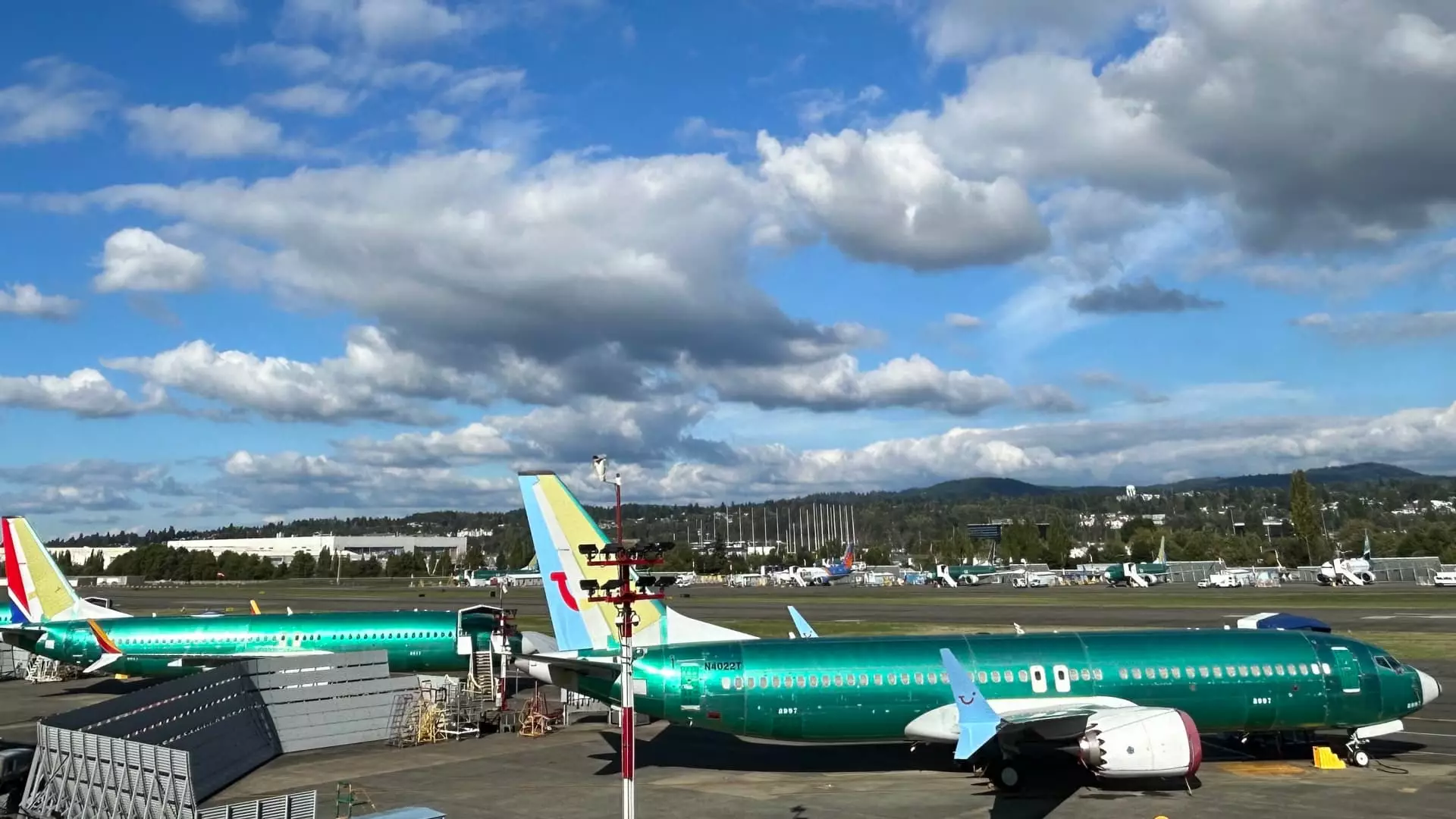The procurement of new aircraft has always been a daunting task for the U.S. government, particularly when it comes to the iconic Air Force One. With the Trump administration’s initiative to replace the aging fleet of 747s, significant delays have come to light that warrant scrutiny and spotlight on broader implications for defense contracting. The situation highlights not only the logistical hurdles facing Boeing but also the high stakes involved in government contracts for aircraft that symbolize American leadership.
Recent statements from former President Donald Trump reflect a palpable discontent with the lengthy timeline associated with the delivery of the new Air Force One planes. Initially negotiated as a $4 billion contract during Trump’s first term, the project has since spiraled into a mess of cost overruns exceeding $2 billion, raising questions about management efficiency and accountability within Boeing. As Trump prepares for the possibility that these aircraft may not be operational by the end of his current term, the urgency to rectify these delays grows increasingly pronounced.
The aircraft in question have faced a myriad of complications that are not uncommon in large-scale defense contracts. In addition to the specific challenges related to Air Force One, the aviation industry, particularly Boeing, has also been plagued by broader production issues exacerbated by the COVID-19 pandemic. This context of operational stress could strain Boeing’s relationships with various clients, leading to a crisis of confidence not just in their products but also in the company’s ability to meet deadlines.
In an unusual turn of events, Trump’s advisor, Elon Musk, has entered the fray by offering assistance in expediting the delivery process. As the CEO of SpaceX, Musk is no stranger to the complexities of aerospace production and has gained a reputation for circumventing traditional bureaucracies to achieve swift outcomes. Boeing CEO Kelly Ortberg acknowledged Musk’s input during a Barclays industrials conference, emphasizing the need to eliminate “non-value-added constraints” that have slowed progress.
It’s intriguing to consider how Musk’s unconventional approach to production could be a boon to Boeing. By removing bureaucratic barriers and focusing on essential technical requirements, Musk may play a critical role in pushing Boeing towards a more agile production framework. However, this partnership also raises questions about competition: how can Boeing maintain its edge in the defense sector while collaborating with an industry rival?
Frustration over delays isn’t limited to the presidential aircraft; numerous commercial airlines have expressed their dissatisfaction regarding Boeing’s prolonged timelines for aircraft delivery. The industry has been awakening from pandemic-induced slumber, and as travel demand increases, every moment counts. Thus, an efficient turnaround at Boeing is paramount not only for fulfilling governmental orders but also for restoring faith among commercial partners.
Recent comments from aviation executives reflect a cautious optimism regarding Boeing’s capabilities. Notably, the sentiment seems to have shifted favorably since Ortberg took over management. United Airlines has indicated increased confidence in the timely delivery of its MAX aircraft, citing improvements in Boeing’s operational strategy. Such endorsements from major airlines suggest that the industry is slowly regaining trust, a critical component for Boeing if it hopes to succeed in the competitive landscape of commercial and defense aviation.
The urgency surrounding the delivery of new Air Force One planes presents an opportunity for Boeing to reevaluate its production processes and internal structures. This situation is emblematic of broader issues in defense procurement: the need for transparency, efficiency, and responsiveness. As the aviation sector resumes its footing post-pandemic, the lessons learned from this procurement should inform future projects not only for Boeing but for all defense contractors.
The saga of Air Force One’s replacement encapsulates a complicated interplay of politics, corporate innovation, and customer expectation. Boeing now stands at a crossroads where it must balance governmental demands alongside evolving market conditions, all while navigating a competitive landscape disrupted by the introduction of unconventional players like Musk. The delivery of Air Force One may be delayed, but the ongoing dialogue surrounding it presents fertile ground for redefining aircraft procurement in the United States.


Leave a Reply